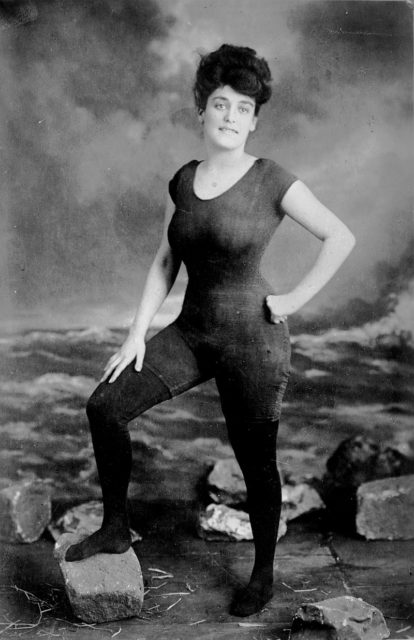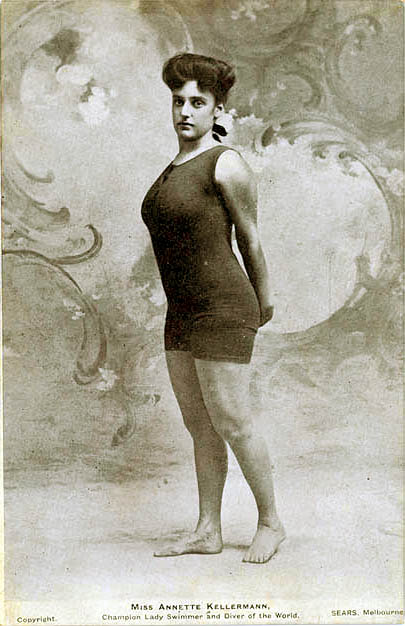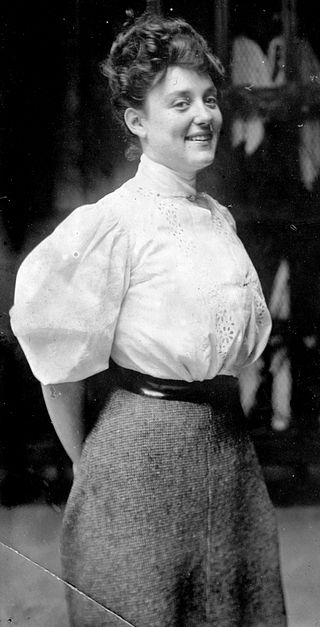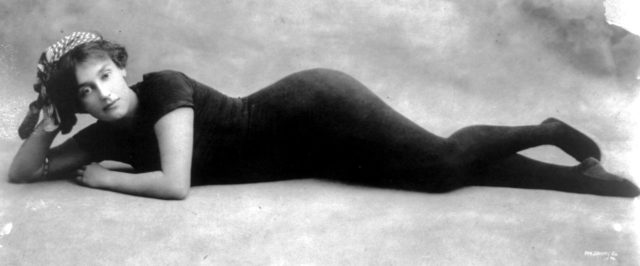Every time a woman plunges into a pool, she can thank the Australian swimmer Annette Kellerman for the crisp, fresh feeling of water on her skin. Known as the “Diving Venus” and the “Australian Mermaid,” Kellerman was one of the most famous women of her time.
Kellerman made a reputation as an athlete and an actress, as well as a vaudevillist. Her perfect physique and powerful skill for underwater performance drew enormous publicity for her record-breaking athletic feats. Her lasting feat is the invention of the streamlined one-piece swimming costume for women, recognized as a liberating garment.

Kellerman once said: “There is nothing more liberating than swimming… All life’s shackles are washed away with the waves.”
Such a statement was perhaps not supported by Victorian contemporaries who were raised with and practiced prim and proper manners, which included wearing “appropriate” swimming attire: a veritable woolen shackle that held swimmers back from enjoying a refreshing romp in the tide. The social norms demanded women wear long bathing dresses with heavy hems that prevented them from revealing anything of their bodies when in water, or a less cumbersome costume of billowy pantaloons and knee-length dresses. For the sake of their feminine modesty, some women were even directly transported to the water edge by bathing machines (tall enclosed buggies).

As a contrast, in the early 20th century, Kellerman was determined to revel in her seaside fun despite the prevailing prudish attitudes. In 1905, she invented a revolutionary one-piece swimsuit for women, which she called a “figure suit.” Her idea was to reduce the amount of clothing women had to wear, allowing for freedom of movement in the water.

At one of her trips to England for a swimming and diving exhibition at London’s Bath Club, she realized that her usual thigh-bearing suit would be slandered by the British audience, so she acquiesced to the already established conventions and sewed a pair of stockings to a men’s suit. And voila! The Annette Kellerman style swimsuit was created as the very first one-piece swimming suit for women.
Soon after, Kellerman inspired others to follow her example and her costumes became so popular, that she started her own fashion line of one-piece bathing suits. Her competitive spirit made her an international star. She hit the road for the United States where she worked as an aquatic performer and eventually become the highest-paid female star in vaudeville. Kellerman’s publicity increased in 1907 when she was arrested on a Boston beach, accused of indecency because she wore her one-piece costume. The arrest spotlighted her achievements as an advocate of women’s rights and the benefits of swimming. In order to persuade other women to get rid of their old-fashioned bathing dresses, Kellerman added a “modesty panel” to her original swimsuit, which covered the “controversial” contours of the thighs.

Kellerman also helped popularize the sport of synchronized swimming and created a swimming manual. She appeared in a few films that had aquatic themes and adventures. She performed her own stunts and many times played mermaids named like her. These “fairy tale films” as she called them started in 1911, when she starred in the film The Mermaid, in which she was the first actress who wore a swimmable mermaid costume on film. In 1916, she became the first major actress to do a nude scene as she played completely nude in A Daughter of the Gods, made by Fox Film Corporation. This film was the first cinematic production to cost $1 million. The film is now considered to be lost because no copies are known to exist.
Read another story from us: Haeneyo: The last generation of Korea’s real-life mermaids
Throughout her life, Kellerman continued to promote a physically active lifestyle, healthy living, and natural beauty and in 1952 her life story was made into the sensational musical Million Dollar Mermaid starring Esther Williams.
